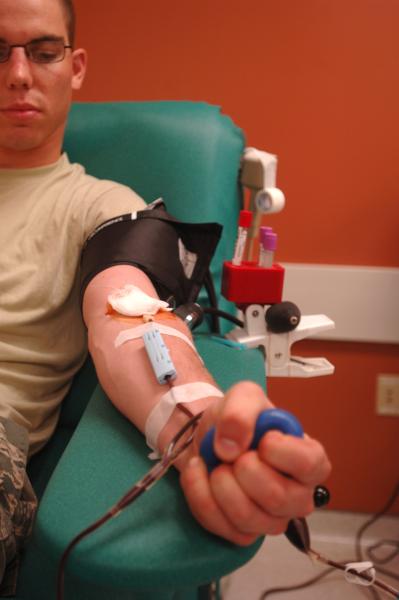When a health emergency strikes, the volunteer spirit displayed by Americans is almost always remarkable. This spirit inevitably surfaces in the aftermath of natural disasters brought on by floods and hurricanes, as well as from unspeakable events like mass shootings, like the one that occurred in Las Vegas last October and last weekend's deadly attack inside a Pittsburgh synagogue that claimed 11 lives and left city residents reeling with grief.
Among the ways caring onlookers immediately respond to these terrible incidents: donating blood.
Many do so instinctively, regardless of the actual blood demands needed to treat the wounded. Of course, no one can fault those who want to help in this way; it's a selfless act borne out of empathy and compassion. At the same time, however, we're learning that these donations can sometimes be partly unnecessary.
Red blood cells have a relatively short shelf life; 42 days, with platelets having just 5, according to Northwestern Memorial HealthCare in Chicago. Too much blood donated at once can create an unusable surplus, resulting in some being discarded when the expiration date arrives. This is one of the findings, as it relates to mass shootings, identified by a Vanderbilt University researcher studying this issue.
In a new study released Tuesday, he concluded that more than 15 percent of blood donations often don't make it to shooting victims or other hospital patients at a later time, and must be poured out. Another conclusion is that when local officials announce a well-meaning call for blood donations, many times it proves to be unnecessary. As a result, for those wishing to help, delaying the impulse to donate might be more useful.
"There is an emotional desire after these events to immediately donate blood, but that's not always necessary and it's not always the best immediate response," said James Lozada, DO, assistant professor of Anesthesiology at Vanderbilt University Medical Center. "The best thing you can do is donate blood year around."
To illustrate the point Lozada studied other shootings, in particular, the horrendous massacre in Las Vegas a year ago. That's when 869 people attending an outdoor concert were injured, including 58 who were killed. At subsequent news conferences covered by national media, the sheriff called for donations. Americans responded.
"The Las Vegas blood bank, United Blood Services, reported having received 791 donations immediately following the mass shooting," according to a statement by Northwestern Memorial and Northwestern Medicine, which published the study in Journal of Trauma and Acute Care Surgery. UBS "reported to study authors that 137 of these donations (17 percent) went unused and were subsequently discarded, compared to an average 26 wasted donations per month at the blood bank."
When these type of mass-casualty events occur, blood banks around the country spring into action and ship supplies where they are needed. Therefore, when Las Vegas hospitals were besieged by patients needing transfusions, replenishments from other parts of the country quickly arrived, making mass donations on a local basis somewhat unnecessary.
Lozada began the study while at Northwestern University Feinberg School of Medicine in Chicago. One way of evening out the incoming flow of donations, he advises, is "for cities to develop some protocols for these scenarios, where instead of issuing a blanket call for blood donation you would do it in a systematic way."
Another idea – suggested by ACSH's Chuck Dinerstein, a retired vascular surgeon – is for hospitals, once they've reached their blood-bank capacity, to ask donors to return on a specific day a month or so later to give blood. Yes, this approach somewhat undercuts the donor's emotional desire to immediately assist those in need. However, from a practical standpoint their contribution becomes more useful.
Of course, no one involved in the lifesaving profession wants to paint a picture that it's not important to donate blood anymore, or to discourage volunteers from coming forward. As a result, with these findings hospitals, blood banks, as well as the Red Cross, need to walk a fine line between encouraging donations – just not an excessive amount of them.




